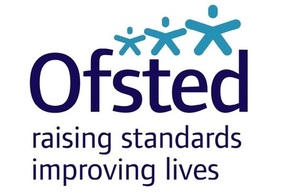Chief Inspector calls for education to be central to Manchester and Liverpool’s strategies for growth
Sir Michael raised concerns about declining secondary school performance and pupil attainment in Liverpool, Manchester and surrounding areas

The Northern Powerhouse will “splutter and die” if youngsters in Manchester and Liverpool lack the skills to sustain it, Her Majesty’s Chief Inspector, Sir Michael Wilshaw said in a speech today.
Sir Michael spoke out amid concerns about declining secondary school performance and pupil attainment in the 2 cities and many of their surrounding towns.
Three in 10 secondary schools in Manchester and 4 in 10 in Liverpool are judged by Ofsted to be inadequate or require improvement.
The proportion of Manchester’s pupils gaining 5 GCSEs grade A* to C, including English and mathematics, declined from 51% 2 years ago to 47% currently. In Liverpool the percentage fell from 50% to 48% over the same period.
In his Annual Report published in December, Sir Michael called England “a nation divided at age 11”, referring to the discrepancy between the performance of schools in the North and Midlands and those in the South. In today’s speech to the Institute for Public Policy Research (IPPR), Sir Michael said that the extent of this underperformance presents a very real risk to the government’s vision of a Northern Powerhouse.
He said:
Manchester and Liverpool are at the core of our ambitions for a Northern Powerhouse. They are the engines that could transform the prospects of the entire region. But as far as secondary education is concerned they are not firing on all cylinders. In fact they seem to be going into reverse.
Comparing the performance of secondary schools in the capital with those in the North West’s 2 major cities, Sir Michael said:
Yes, London has advantages that other cities lack, but what of Liverpool or Manchester? Are you really telling me that they lack swagger and dynamism? That they cannot succeed in the way London has succeeded? These are the cities that built Britain. They pioneered a modern, civic education when students at certain other universities spent most of their time studying the New Testament in Greek.
Sir Michael called on all those with power and influence to make a real difference in galvanising change and supporting much-needed improvements in secondary education across Manchester and Liverpool.
He said:
I am calling on local politicians, be they mayors, council leaders or cabinet members, to stand up and be counted, to shoulder responsibility for their local schools, to challenge and support them regardless of whether they are academies or not. I’m calling on them to be visible, high-profile figures that people can recognize as education champions. I am calling on them to make education in general – and their underperforming secondary schools in particular – a central target of their strategy for growth.
Unless they do, I fear Manchester and Liverpool will never become the economic powerhouses we want them to be. We cannot fight for social mobility with political immobility. Politicians need to act. It requires grit, imagination, faith and bloody mindedness – qualities that, fortunately, I really don’t think are less common in the North than they are down South.
Ofsted’s Regional Director for the North West, Chris Russell, has echoed Sir Michael’s concerns in an open letter sent today to all those responsible for overseeing education provision across Greater Manchester.
In this letter, Mr Russell says too many pupils attending secondary schools in places like Salford, Rochdale, Oldham and Manchester itself are being left ill-prepared for the next phase of their education, training or employment.
This level of performance presents not only a worrying picture for the employment prospects of young people in one of the United Kingdom’s major cities, it also presents a real risk to the economic and social stability of the area as a whole.
The decline in the attainment of secondary school pupils is particularly disappointing given the significant level of investment through the Greater Manchester Challenge. This was established to improve outcomes for children and young people, but the legacy of the £50 million campaign appears to be one of decline rather than improvement.
Mr Russell has written a similar open letter to those responsible for education provision in Knowsley, where there is not a single good or outstanding secondary school. In 2015, almost two thirds of Knowsley’s school leavers failed to achieve 5 or more GCSE grades A* to C, including English and mathematics.
Notes to editors:
- Read Sir Michael’s speech to the IPPR.
- Read the letters to Greater Manchester and Knowlsey.
- The Office for Standards in Education, Children’s Services and Skills (Ofsted) regulates and inspects to achieve excellence in the care of children and young people, and in education and skills for learners of all ages. It regulates and inspects childcare and children’s social care, and inspects the Children and Family Court Advisory and Support Service (Cafcass), schools, colleges, initial teacher training, work-based learning and skills training, adult and community learning, and education and training in prisons and other secure establishments. It inspects services for looked after children, safeguarding and child protection.
Media enquiries
Clive House
70 Petty France
London
SW1H 9EX
Email pressenquiries@ofsted.gov.uk
Monday to Friday, 8:30am to 6pm 0300 013 0415
Out of hours duty press officer 07919 057 359